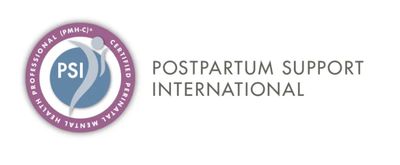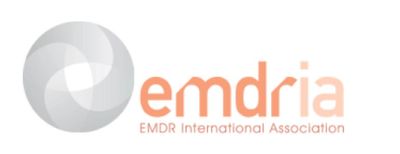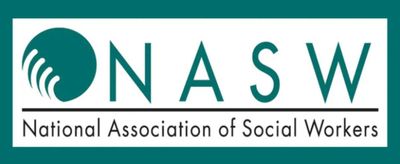
Therapy, Customized to You.
Our diverse therapy options are not designed to be 'one-therapy-fixes-all'. These options are a toolbox that we can choose from when customizing your care and what you truly need from us, as well as what we know will help you. While getting to know you at your appointment, we customize your therapy specifically to what will support you the most, and may involve several of the therapies we offer. Learn more about them here!
Our Providers
Our providers come from all walks of life and offer a diversity of expertise and therapies. We are proud to be a woman-owned practice, and are proud to offer an inclusive, welcoming environment for our clients regardless of race, ethnicity, lgbtq+ status, or disability.
Eye Movement Desensitization & Reprocessing (EMDR)
Eye Movement Desensitization and Reprocessing (EMDR) is a form of therapy that enables people to heal from the symptoms and emotional distress that are the result of disturbing life experiences. EMDR therapy shows that the mind can in fact heal from psychological trauma much as the body recovers from physical trauma. Bilateral stimulation (BLS) is a core treatment element of EMDR and a process which distinguishes EMDR from any other method. EMDR treats kids and adults for PTSD, depression, anxiety, panic, and emotional distress.

Our Providers
Our providers come from all walks of life and offer a diversity of expertise and therapies. We are proud to be a woman-owned practice, and are proud to offer an inclusive, welcoming environment for our clients regardless of race, ethnicity, lgbtq+ status, or disability.
Progressive Counting (PC)
Progressive counting (PC) is a recently developed trauma treatment, based on the counting method. It involves having the client visualize a series of progressively longer “movies” of the trauma memory while the therapist counts out loud (first to a count of 10, then 20, then 30, etc.). By repeatedly imagining the movie of the memory, the memory gets “digested” or healed, and emotionally processed. Progressive Counting is an alternative treatment for PTSD, depression, anxiety, and is highly efficient and effective.

Our Providers
Our providers come from all walks of life and offer a diversity of expertise and therapies. We are proud to be a woman-owned practice, and are proud to offer an inclusive, welcoming environment for our clients regardless of race, ethnicity, lgbtq+ status, or disability.
Cognitive Behavioral Therapy (CBT)
Cognitive-behavioral therapy (CBT) focuses on exploring relationships among a person’s thoughts, feelings and behaviors. During CBT a therapist will actively work with a person to uncover unhealthy patterns of thought and how they may be causing self-destructive behaviors and beliefs. CBT addresses anxiety disorders, panic, depression, obsessive compulsive behaviors, intrusive thinking, and helps clients change their thoughts and behaviors to improve their overall life satisfaction and functioning.

Our Providers
Our providers come from all walks of life and offer a diversity of expertise and therapies. We are proud to be a woman-owned practice, and are proud to offer an inclusive, welcoming environment for our clients regardless of race, ethnicity, lgbtq+ status, or disability.
Dialectical Behavior Therapy (DBT)
Dialectical behavior therapy (DBT) is rooted in teaching people how to live in the moment, use cope healthily with stress, regulate emotions, and improve relationships with others. DBT focuses on four main areas including: mindfulness, distress tolerance, emotion regulation, and interpersonal effectiveness. Originally developed for severe depression and suicidal ideation/self harming, it is highly effective at treating a variety of mental health struggles including personality disorders, mood disorders, and trauma.

Our Providers
Our providers come from all walks of life and offer a diversity of expertise and therapies. We are proud to be a woman-owned practice, and are proud to offer an inclusive, welcoming environment for our clients regardless of race, ethnicity, lgbtq+ status, or disability.
Internal Family Systems
Internal Family Systems (IFS) therapy is a transformative, evidence-based psychotherapy that helps people heal by accessing and loving their protective and wounded inner parts. IFS practitioners believe the mind is naturally multiple and that is a good thing. Just like members of a family, inner parts are forced from their valuable states into extreme roles within us. IFS focuses on supporting clients in healing attachment wounds associated with PTSD and early childhood neglect and abuse.

Our Providers
Our providers come from all walks of life and offer a diversity of expertise and therapies. We are proud to be a woman-owned practice, and are proud to offer an inclusive, welcoming environment for our clients regardless of race, ethnicity, lgbtq+ status, or disability.
Mindfulness Based Stress Reduction (MBSR)
MBSR therapy is a meditation therapy which is used to develop coping skills for stress management, chronic pain, depression, anxiety, and additional mental, physical, and emotional health challenges. It is also integrated into preparation for trauma resolution therapies.

Our Providers
Our providers come from all walks of life and offer a diversity of expertise and therapies. We are proud to be a woman-owned practice, and are proud to offer an inclusive, welcoming environment for our clients regardless of race, ethnicity, lgbtq+ status, or disability.
Brainspotting
Brainspotting uses focus and precision to identify points in the client’s visual field that help to access unprocessed trauma in the subcortical brain (Brainspots) where the trauma, anxiety, depression or behavioral problems are held. Brainspotting (BSP) was discovered by David Grand, Ph.D in 2003.When a Brainspot is stimulated, individuals are able to find and strengthen their natural resources and resilience. BSP is a therapeutic tool that can be integrated into many modalities including EMDR, CBT, Progressive Counting, and others to enhance healing.

Our Providers
Our providers come from all walks of life and offer a diversity of expertise and therapies. We are proud to be a woman-owned practice, and are proud to offer an inclusive, welcoming environment for our clients regardless of race, ethnicity, lgbtq+ status, or disability.
Schema Therapy
Schema therapy targets schemas, or maladaptive patterns of thinking that could cause someone to engage in unhealthy behavior, or to struggle to maintain healthy relationships. Schemas develop during childhood as a result of unmet physical and emotional needs, and poor or inappropriate boundaries from caregivers. In adulthood, these schemas are thought to influence an individual’s thoughts and actions in negative ways—leading to behaviors such as avoidance, overcompensation, or excessive self-sacrifice. These behaviors, in turn, can negatively affect relationships and emotional well-being.

Our Providers
Our providers come from all walks of life and offer a diversity of expertise and therapies. We are proud to be a woman-owned practice, and are proud to offer an inclusive, welcoming environment for our clients regardless of race, ethnicity, lgbtq+ status, or disability.
Acceptance and Commitment Therapy (ACT)
The goal of Acceptance and Commitment Therapy (ACT) is to create a rich and meaningful life while accepting the pain that inevitably goes with it. ACT is an action-oriented approach that utilizes mindfulness to help people alleviate distress and suffering while developing emotional and psychological flexibility. Clients learn to stop avoiding, denying, and struggling with their inner emotions and, instead, accept that these deeper feelings are appropriate responses to certain situations that should not prevent them from moving forward in their lives. ACT is beneficial for a range of health problems including managing chronic pain, addictions, anxiety, depression, obsessive-compulsive disorder, and rigidity in thinking.

Got Questions? We Have Answers.
What is mental health counseling?
Counseling is collaborative process which involves the development of a unique, confidential, therapeutic, helping relationship. In this relationship, the therapist acts as a facilitator in helping the client to more accurately understand themself and the world around them, and to better understand their feelings and behaviors. Discussion of whatever is important and impacting someone’s life can enable an individual to grow toward greater freedom in making mature choices and taking responsible action.
What types of concerns do people bring to counseling?
Many different things bring people to therapy including: difficulties with life transitions, poor coping, history of stress and trauma impacting functioning, depressive symptoms, anxiety, conflictual relationships, parenting struggles, infertility, grief/loss, etc.
What is counseling like?
Counseling will be a different experience for different people. Our therapists will strive to meet your individual needs based on your unique set of circumstances. Initial appointments will consist of gathering history, as well as identifying personal goals and hopes for counseling. It is my job to ensure you are receiving quality care. If, by chance, I am not a good match for you and your needs, I will refer you to a trusted colleague with specialization in your area of need. I pull from many modalities, all with a trauma-informed approach.
What is the difference between relationship counseling and relationship coaching?
Coaching is different from counseling. It involves partnering with clients in a thought-provoking and creative process that inspires them to maximize their personal, professional, and relational potential. Professional coaches provide an ongoing partnership designed to help clients produce fulfilling results in their personal, professional, and relational lives. Coaches help people improve their performances and enhance the quality of their lives. Coaches are trained to listen, to observe and to customize their approach to individual client needs. They seek to elicit solutions and strategies from the client; they believe the client is naturally creative and resourceful. The coach’s job is to provide support to enhance the skills, resources and creativity that the client already has.
Ott Counseling & Consulting, LLC offers individual and relationship coaching with River-Aaerin Hites, who is a masters level trained marriage and family therapist, but who is currently focusing on coaching which allows more flexibility for clients, particularly who want to work outside of diagnoses. River brings over a decade of experience in life coaching, peer specialist work, and direct mental health therapy. While he may utilize his clinical education to best assist you and your partner(s), he will not be providing mental health therapy. If you are interested in mental health therapy instead or in addition to life coaching, please email Kate at support@ottcounseling.com.
How often will I meet with my therapist?
The frequency of therapy will be discussed on an ongoing basis. Sessions as often as twice weekly are available, as well as monthly “check-ins” as your treatment needs grow and evolve over time.
It is very important that you arrive early or on time for your scheduled appointments. Regular, timely attendance to therapy will be instrumental in achieving your therapeutic goals. If, for some reason, you are unable to make it to your scheduled session, please contact me 24 hours ahead of time to avoid no-show fees.
How long will I need to be in counseling?
There is no magic number or formula to determine how long one might be in counseling. For some, counseling is a brief relationship to help manage a present, isolated situation. For many, therapy involves addressing issues which span over one’s lifetime. We will speak regularly about your progress, and my hope is that you will feel comfortable discussing this on an ongoing basis.
When will I start to feel better?
Symptom relief may come from increased use of a variety of skills, including changing thought patterns, behaviors, relationships, and choices. Some feel better during their initial or first few sessions just because they know they are no longer alone in their struggle. Please remember: It is important that you communicate if there are concerns related to your progress so that we can determine what changes may need to be made.
What if I don't feel like it's a good fit with my therapist?
TELL US! Many therapists have different therapeutic approaches or personalities that might not be the right fit for you and that’s okay! If you let us know, we can offer you alternative options for linking with other professionals that may better suit your needs.
What does mental health counseling cost?
We do accept some commercial insurance plans, however we can not guarantee coverage. If utilizing your insurance, dependent on the plan, your session may cost you anywhere from $0-$200. Some insurance plans require a copayment, a coinsurance, or are high deductible. You will be advised of what your financial responsibility will be prior to your first appointment. It is YOUR responsibility to update your therapist on changes in insurance. Private pay (non-insurance) clients will be responsible for $150 dollars per 50-55 minute session. Superbills will be provided if requested by client to submit for reimbursement if there are out of network benefits.
Do you offer a sliding payment scale?
At Ott Counseling, we believe in supporting our community by offering some lower cost options for those who are truly unable to afford our rates. We do this through linking our clients with Pre-Licensed Clinicians and Graduate Students in their pursuit of their NYS licensure with weekly supervision, case consultation, and regular trainings.
Does Ott Counseling accept insurance?
At this time, we can accept many commercial insurance plans through: Highmark/BCBS, Independent Health, Cigna, Aetna, United Health Care and Univera.
At this time we are UNABLE to work with Medicaid/Managed care plans. Please note that if you plan to use your insurance, a diagnosis is REQUIRED for treatment.
How do I pay for my counseling or coaching appointments?
Forms of payment accepted include: cash (exact change only), personal check, credit, Venmo (@OttCounseling), or Paypal (@OttCounseling). A credit card is required on file to schedule an appointment and will be used for all appointment fees and missed session fees. Any coinsurance, high deductible payments and copays are expected at the time of service unless other arrangements have been specified ahead of time. In the event you are unable to make it to an appointment, failure to provide 24 hours notice will result in a no show/late cancelation of $75.00 (or up to 50% of full private pay rate).
What if a 50-55 minute counseling session doesn't feel like enough?
If feeling like your sessions aren't long enough is something you are concerned about, we can offer intensive extended sessions at an hourly rate. These sessions are available for private pay clients, if clinically appropriate.
What is the cost of individual or relationship coaching?
Coaching whether it is individual, with multiple partners, or a couple is an hourly rate of $100/hour. Coaching is NOT covered by insurance, however, the majority of marriage/family therapists are not covered by many insurance plans. We encourage you to explore your insurance plan, as well as intentions of relationship counseling to see if coaching may meet your needs.



